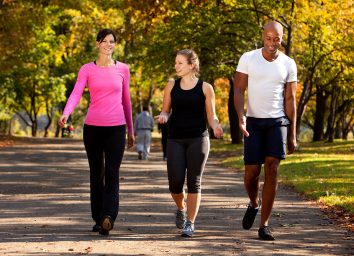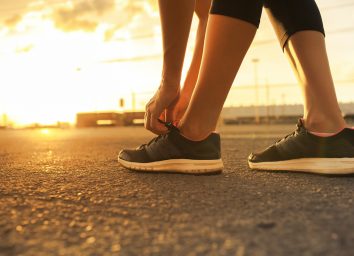Secret Side Effects of Walking on the Beach, Says Science
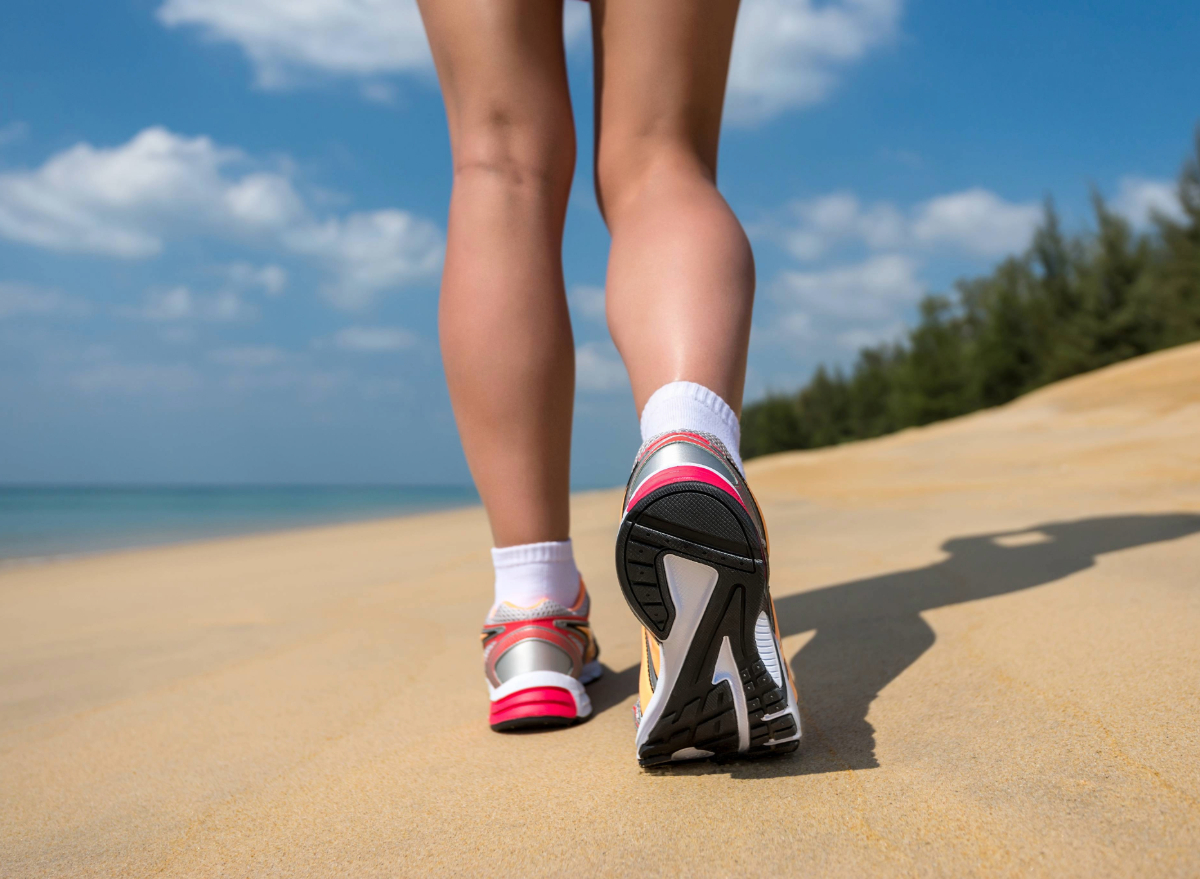
If you love walking for exercise, know that there are more benefits to hitting the beach than simply seeing some gorgeous views and smelling that fresh salty air. The available science shows that you'll actually get a far better walking workout overall. For just a few of the amazing side effects on your body of taking your brisk walk to a sandy beach, read on, because we've listed a handful of them right here. And if you're a diehard walker, make sure you're aware of The Secret Cult Walking Shoe That Walkers Everywhere Are Obsessed With.
You Burn More Calories

Have you noticed that walking on sand for just about any period of time can just feel harder than walking on a nicely paved sidewalk? You're not imagining things, and your body is feeling it, too. According to an old study published in the Journal of Experimental Biology, walking on sand "has a profound effect on the mechanics and energetics of locomotion." In fact, the study notes that "walking on sand requires 1.6-2.5 times more mechanical work than walking on a hard surface at the same speed." Also, it results in "2.1-2.7" more calorie burn.
What's more, you'll feel these effects whether you're going barefoot or wearing a pair of running or walking shoes. And for more on the benefits of walking, check out Exactly How Fast You Need to Walk to Live Longer, Says Science.
You'll Work Your Muscles and Tendons More

According to the aforementioned study, the reason your body churns through more energy propelling you over sand is because you're recruiting more work out of your muscles and tendons. In short, every time your foot digs into that sand, you're activating more muscles across your body to get it out than you would if you were taking a step on your paved driveway. According to Healthline, "the increased resistance [of sand walking] will strengthen the muscles between your feet and back, especially your calves, quadriceps, and glutes."
According a 2014 study published in the Journal of Sports Sciences, exercising on sand can also reduce your risk of injury, noting that "the lower impact forces experienced on sand can limit muscle damage, muscle soreness, and decrements in performance capacity relative to exercise intensity."
You'll Improve Your Balance and Coordination
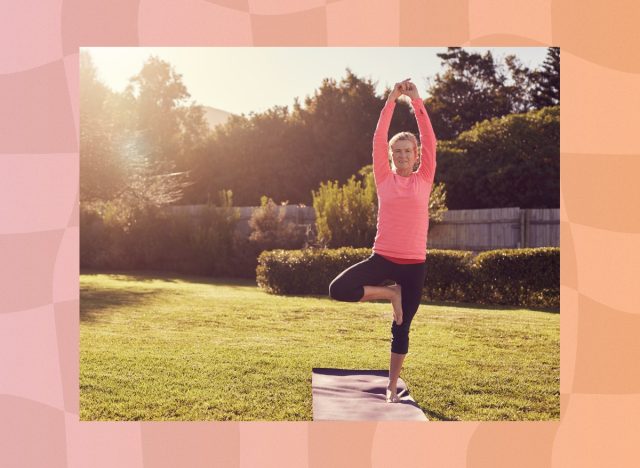
Have you ever heard the term "proprioception?" It's defined as our body's ability to sense where we are in space. According to Leython Williams, PT, DPT, examples of proprioception at work include "throwing a ball without having to look at the throwing arm" and "knowing whether feet are on soft grass or hard cement without looking." Williams also explains that proprioception helps you do multiple things at once, such as dribbling a basketball while running. "Proprioception is necessary for precise and fluid movements, making it essential to athletes and non-athletes alike," he explains.
It's essential for balance, stability, and coordination, and research has shown that walking on sand will strengthen your sense of proprioception. "Because sand is an uneven surface, beach walking qualifies as a proprioceptive exercise," reports The Houston Chronicle. "In other words, stepping across sand challenges and develops your ability to know where your feet are without looking at them. In this way, sand walking is similar to standard proprioceptive exercises, such as balancing one-legged on a cushion with your eyes closed." And for more great walking tips you can use, don't miss these Bad Walking Habits Every Walker Should Quit, Say Experts.
You Could Get Lean

According to a study published last year in the journal Healthcare (Basel), those who walked on sand shrank their waists by 2.3 more centimeters than those who walked on hard surfaces. What's more, after four months of "sand walking training," the volunteers reported a higher quality of life and better "dietary control."
You'll De-Stress
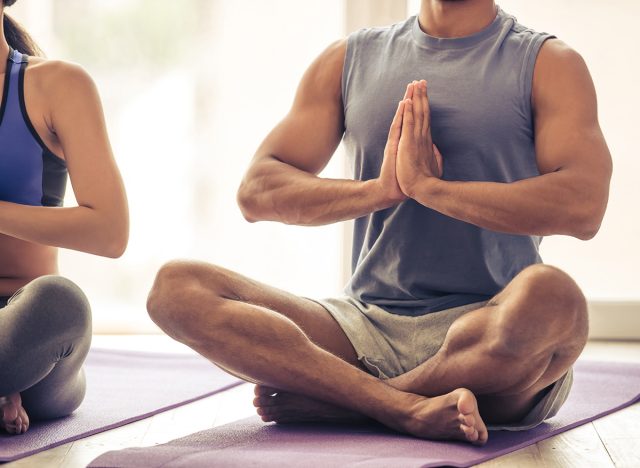
Yes, this is obvious, but it's worth noting here regardless: Walking on the beach is a wonderful stress reliever in seemingly countless ways. You'll be soaking in vitamin-D (which is linked to a reduced risk of depression), you'll be communing with nature (which is linked to a reduced risk of depression), and you'll have a view of a massive expanse that psychologists say will help you feel as though your own problems, in the grand scheme of things, just aren't so big.
But if you need further proof, know that a recent study published in the journal Environmental Research found that walkers who went by bodies of water (including beaches) for only 20 minutes felt the de-stressing effects. "We saw a significant improvement in the participants' well-being and mood immediately after they went for a walk in the blue space, compared with walking in an urban environment or resting," noted Mark Nieuwenhuijsen, Director of the Urban Planning, Environment and Health Initiative at ISGlobal, in the study's official release. And for more tips on becoming a better walker starting now, see here for The Secret Tricks for Walking for Exercise, According to Walking Specialists.
